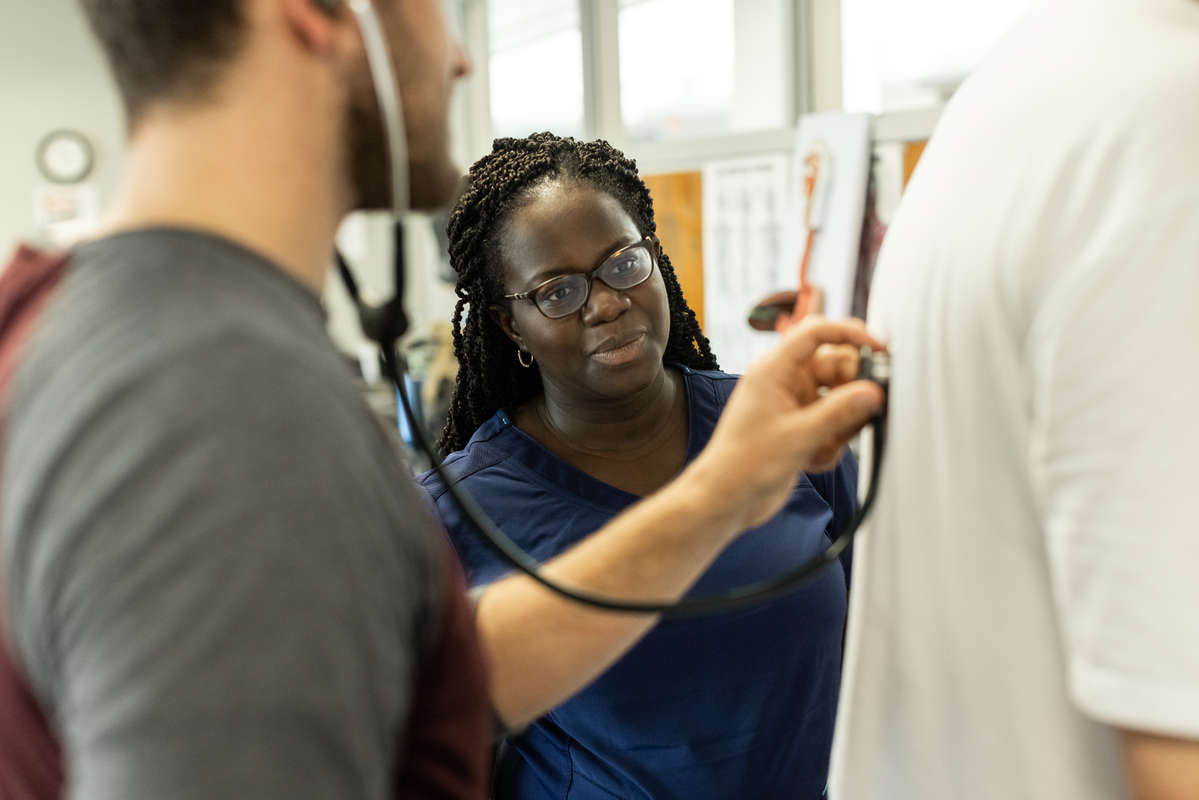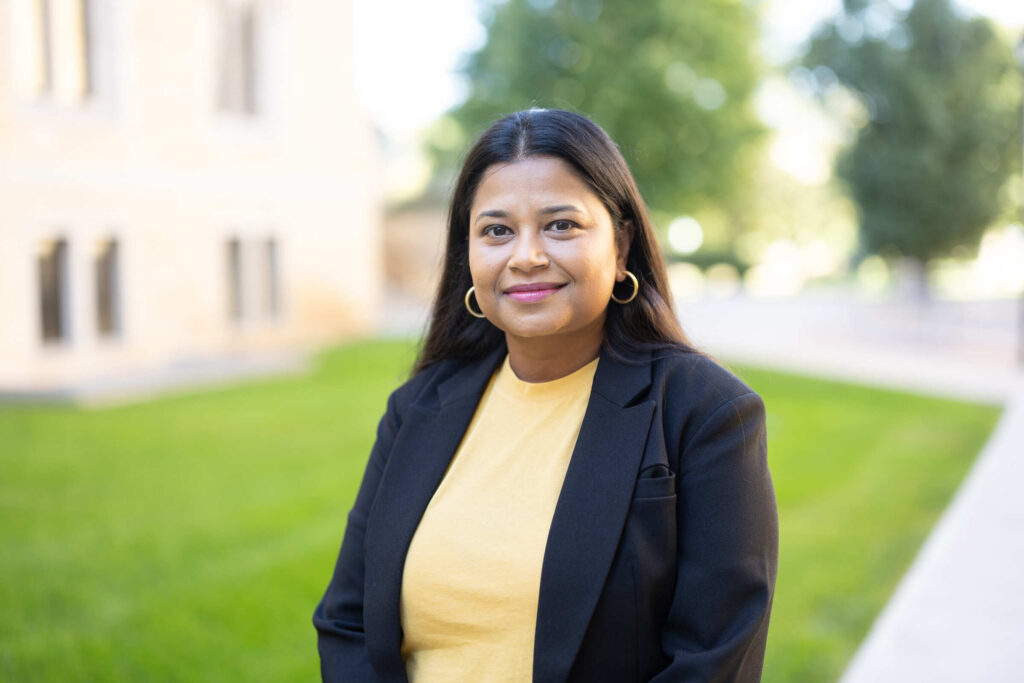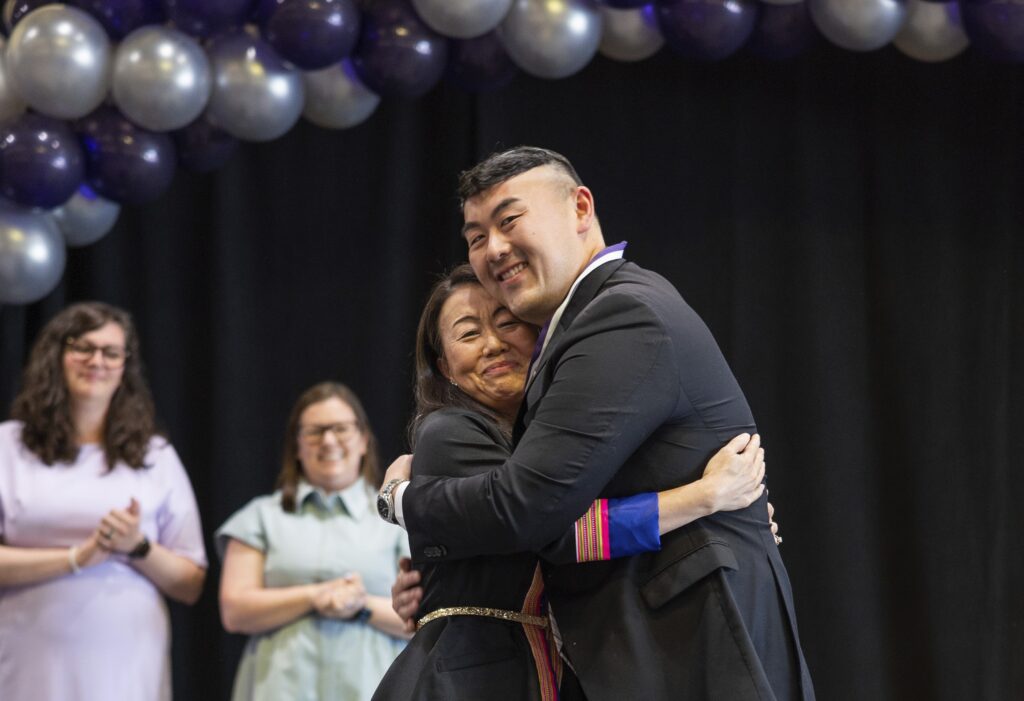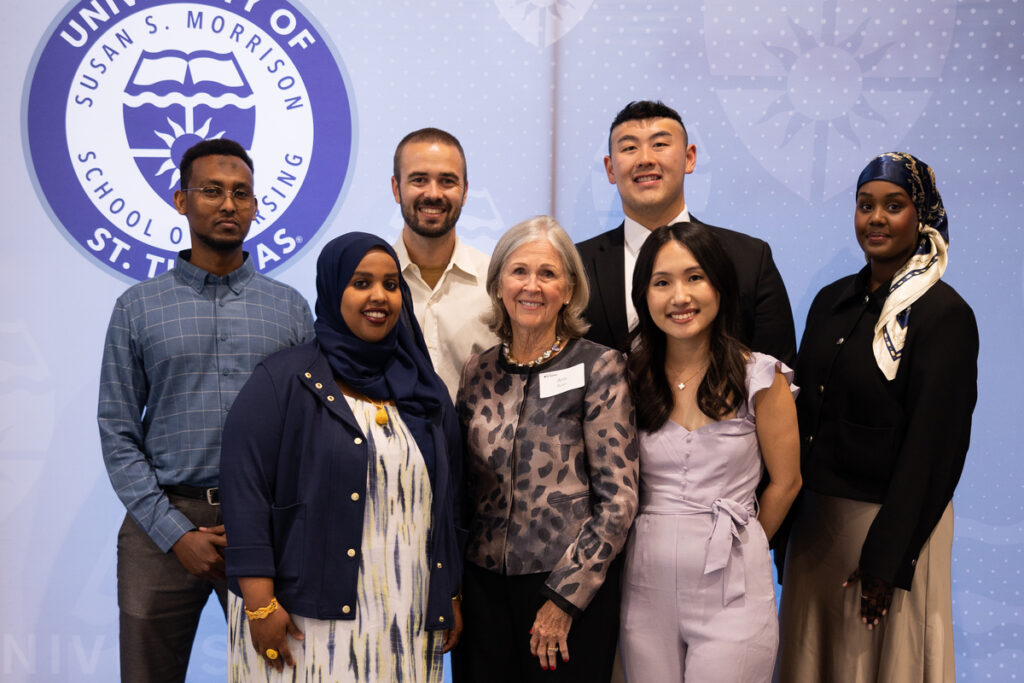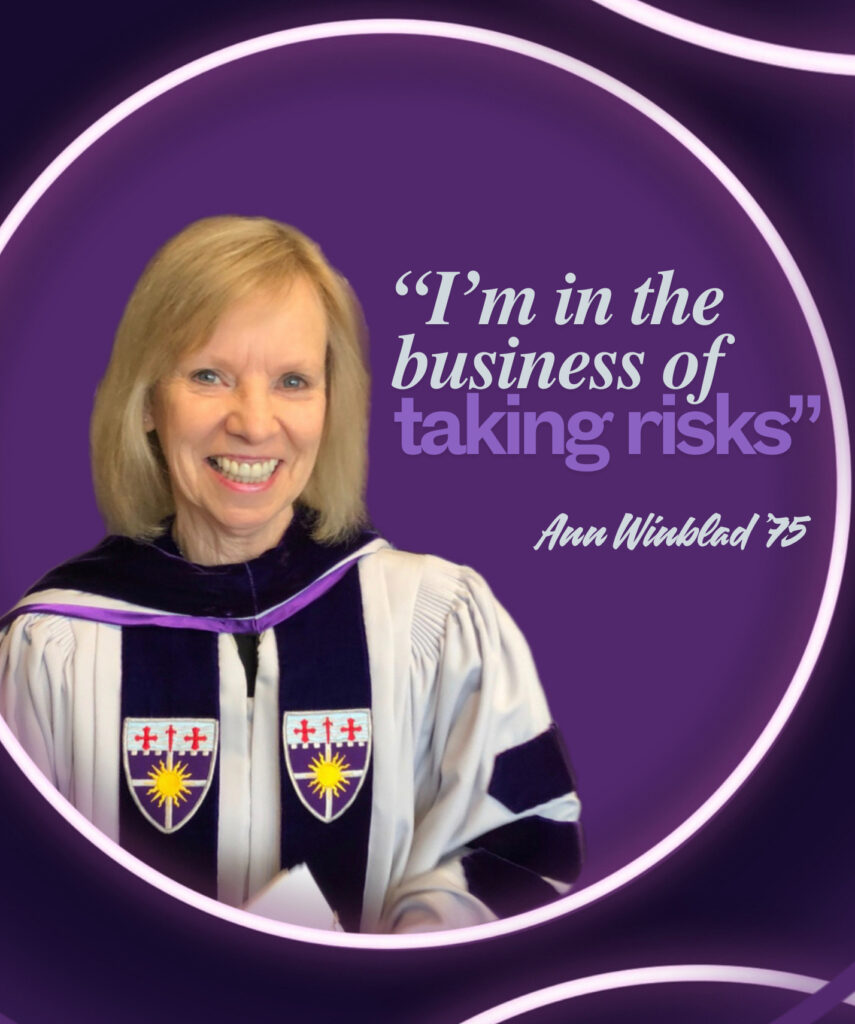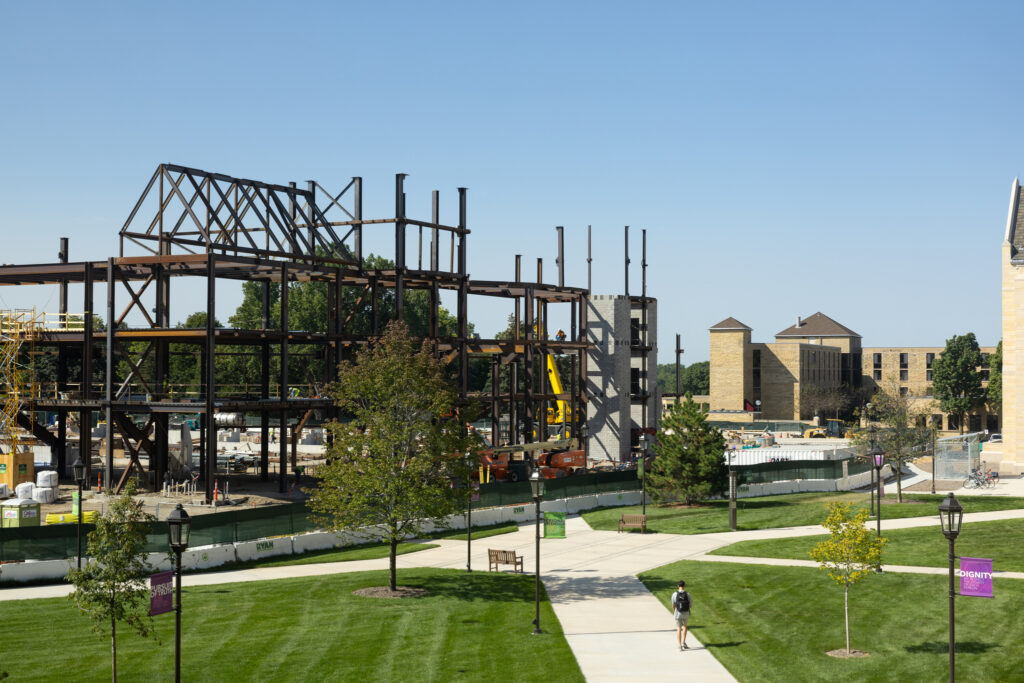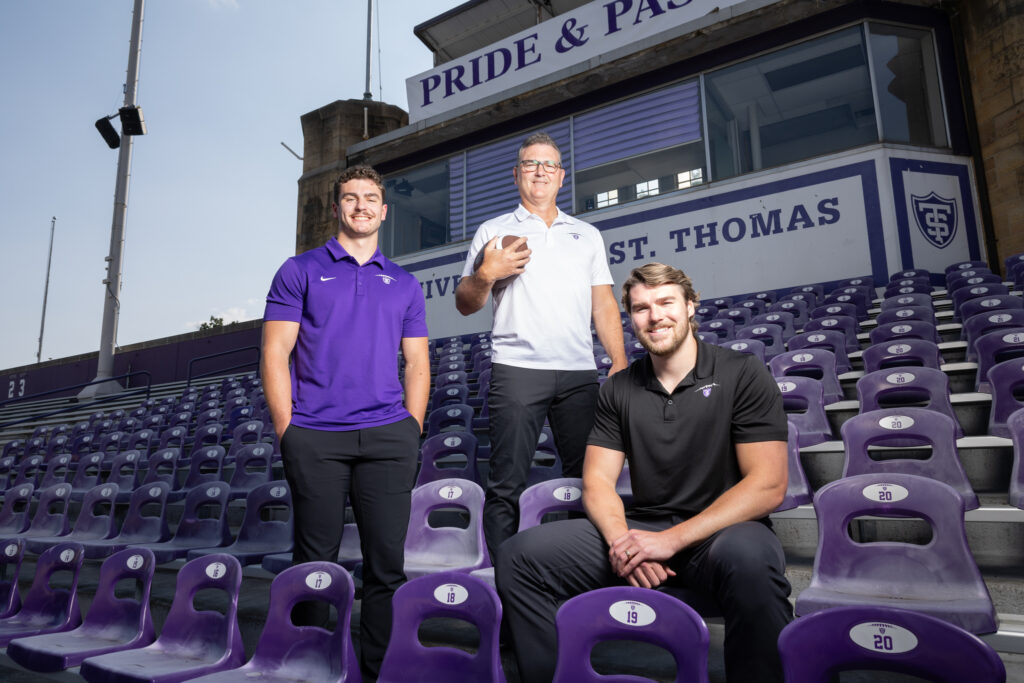Minnesota’s newest nursing school is officially accepting students – and the news comes at a critical time as the nation grapples with a shortage of nurses.
The Morrison Family College of Health School of Nursing has received the green light from the three governing bodies needed to recruit its first class of students for the Bachelor of Science in Nursing and pre-licensure Master of Science in Nursing programs starting in fall 2022. These approvals came from the Higher Learning Commission (November), the Minnesota State Board of Nursing (August) and the Minnesota Office of Higher Education (April).
Dr. Martha Scheckel, founding director of the School of Nursing, recognizes the importance of St. Thomas achieving this program milestone at a time when society is essentially in a health care crisis.
“It’s part of our commitment to serving the common good,” Scheckel said. “It’s especially important that we are addressing the nursing workforce shortage that has grown during the COVID-19 pandemic.”
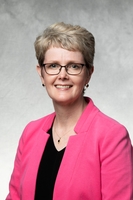
Scheckel said that throughout her many years in the nursing field, she’s never seen such a demand for nurses. While there was a growing nursing shortage pre-pandemic, the current situation has made the need for skilled nurses even more dire.
“When you have to call in the National Guard to support health care institutions like we’ve had to do around the country ... I have never seen that before in my career,” she said. “It’s perfect timing for the School of Nursing.”
The current nursing shortage is so severe that in September 2021, Ernest Grant, president of the American Nurses Association, penned a letter to Health and Human Services Secretary Xavier Becerra, asking that he declare a national nurse staffing crisis. The American Association of Colleges of Nursing (AACN) anticipates demand for nurses to intensify as baby boomers age and their need for health care grows. Meanwhile, a significant number of nurses are nearing retirement age.
The Bureau of Labor Statistics reports employment for registered nurses is projected to grow 9% by 2030, with nearly 200,000 openings for RNs projected each year over the decade. Yet, a study published in the May/June 2018 issue of the American Journal of Medical Quality predicts that there will still be a shortage of more than 500,000 RNs by 2030.
Aspiring nurses wanted
Prospective graduate students seeking an entry into nursing practice degree can apply directly to the Master of Science in Nursing program. Interested undergraduates need to apply and be accepted into the bachelor’s degree in nursing program after completing their first semester at St. Thomas. Both programs are for those currently without a degree in nursing, but who want to earn their license and become registered nurses.
"Our School of Nursing has very distinct goals around closing health equity gaps," said St. Thomas President Julie Sullivan. "We are dedicated to increasing access to culturally responsive care with a goal of enrolling at least 30% students of color and students from other underrepresented backgrounds. Our students will help to provide more care, to more people, in more diverse and rural communities."
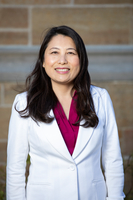
Dr. MayKao Y. Hang, vice president, strategic initiatives and founding dean of the Morrison Family College of Health, said the approvals to start recruiting ensure the School of Nursing is prepared to provide rigorous and high-quality training to future students.
“The students who are going to receive this wonderful liberal arts foundation to actually address what we're seeing in society today in a holistic way, which feels transformational,” Hang said. “We are planting a seed in this community that will bear fruit for generations to come.”
A whole person and whole community focus
The School of Nursing will offer a curriculum aimed at showing students how to address health equity and change the systems that produce them. It is designed to educate students to treat the whole person – mind, body, spirit and community – and promote health and wellness.
“A St. Thomas graduate from the School of Nursing will know how to advocate for systems change,” Hang said. “They’ll be able to work well with others, understand how to use information to make good decisions and be comfortable caring for all.”
An emphasis on health equity, social justice, cultural responsivity and advocacy for the greater good is woven throughout the curriculum of both nursing programs. Through clinical placements, students will be exposed to the many opportunities available to nurses.
“The clinical placements that students who are going into nursing receive are going to look different at St. Thomas,” Hang said. “What we're seeking and what we have built are relationships with community organizations that have nursing in historically excluded communities including the Downtown Improvement District in the heart of Minneapolis.”
Collaborating across campus
St. Thomas is a comprehensive, Catholic university that provides holistic and personalized education for more than 10,000 students. Its mission is to educate students to be morally responsible leaders who think critically, act wisely and work skillfully to advance the common good.
“I believe being part of a faith-based institution enriches a student nurse’s education, which then goes on to enrich and strengthen their practice,” Scheckel said.
As part of the Morrison Family College of Health, School of Nursing students will gain a strong background in working as part of a full health care team, with chances to collaborate with students in other College of Health programs (social work, counseling psychology, and health and exercise science) as well as the Interprofessional Center for Counseling and Legal Services.
“The multidisciplinary nature of the Morrison Family College of Health means that we can embed into our programs an interprofessional core that comes from these different disciplines,” Hang said. “We can teach students how to not be just bystanders in any health delivery system or community system. We will teach them how to agitate for systems change and to dismantle inequities in health care.”
